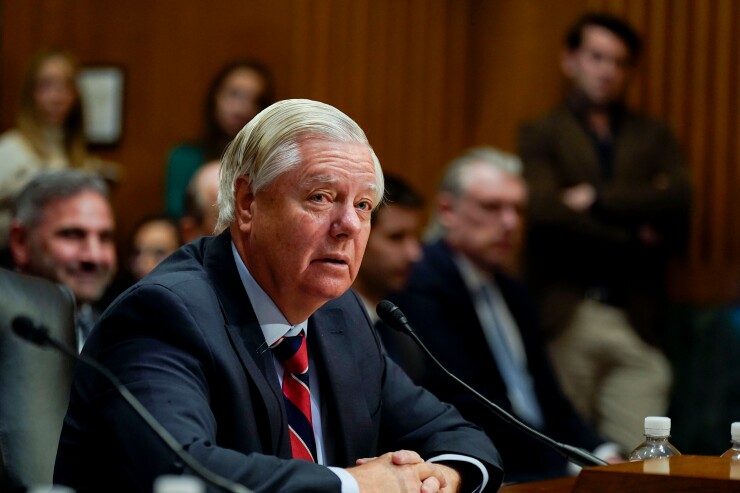Senate Republicans are working to change a House GOP tax plan to require fewer cuts in Medicaid health benefits for the poor and disabled, seeking to mollify members of the party worried about a public backlash.
The move, which is not finalized, also pares back requirements for other spending cuts but risks alienating deficit hawks in both the Senate and the House. Fiscal conservatives in the party want steep spending cuts to help offset the multitrillion-dollar tax-cut package.
Still, the Senate budget plan being prepared allows the party to side-step for now a potential political uproar and eliminates one of several obstacles to delivering President Donald Trump's tax cut plan.
Republicans are using a two-step process to enact at least $4.5 trillion in tax cuts without the help of Democrats. To do that, the Senate and House need to agree to a budget plan that outlines the size of both the tax cuts and spending reductions.
The tax cut package includes an extension of Trump's 2017 cuts for individuals and privately held businesses. Republicans are also aiming to pass additional tax reductions, but narrow majorities in each chamber mean they need to be largely unified on every element of the bill.
Senate Budget Committee Chairman Lindsey Graham told reporters on Thursday that he is not planning to dictate explicit spending cuts in the budget resolution he is writing. That is in contrast to the House-passed version, which instructed the committee in charge of Medicaid and the Children's Health Insurance Program to cut $880 billion over a decade.
The Senate budget plan could include relatively small levels of minimum cuts — such as $1 billion to each committee involved with the bill, according to a person familiar with the plan, who requested anonymity to discuss the evolving negotiations. That would put off any hard decisions on reductions to Medicaid and other programs like food stamps.
Senator John Hoeven, a North Dakota Republican involved in talks on the budget plan, said the approach offers senate committees "flexibility" on spending cuts.
The change could win the votes of Republican senators representing states with high Medicaid usage who have expressed concern about the House tax blueprint, including Josh Hawley of Missouri and Tommy Tuberville of Alabama.
West Virginia Republican Senator Jim Justice said this week he does not want to see Medicaid benefits cut, although he is open to rooting out fraud and imposing work requirements.
"A whole lot of people are on Medicaid," in his state, he said, predicting Congress wouldn't slash their benefits.
Senator Shelley Moore Capito, also a West Virginia Republican, said she is "concerned" about the House budget and the Medicaid cut target is "awfully large."
In West Virginia, 30% of the state's residents under 65 years old and 45% of children were covered by Medicaid or the Children's Health Insurance Program in 2023, the fifth highest share of any U.S. state,
Republicans need 50 of the 53 GOP senators in the chamber to pass the budget. Republican Senator Rand Paul of Kentucky already announced he won't support the measure because it includes an increase in the nation's debt limit.
Dialing back the calls for spending cuts could mean other members pull their support.
Senator John Cornyn told reporters he wants more explicit targets in the budget to ensure large spending cuts.
"This may be the last time in our careers we have the chance," to make such budget savings, he said.






